Austria’s far-right Freedom Party rails against immigration, but counts on the support of one of the largest migrant communities in the country – Serbs.
By Aleksandar Roknic
Luka Markovic owns the Blueberry Lounge Bar in Meidling, a working-class district of Vienna known for its high proportion of immigrants.
Markovic, 44, was born in Austria, but his heritage is Serbian. He is one of an estimated 250,000 Serbs living in Austria, which has a population of some 8.7 million.
More than 100,000 of those Serbs, like Markovic, hold Austrian citizenship. His parents chose to leave Yugoslavia long before its collapse, but when war enveloped the socialist federation in the 1990s the trickle of migrants turned into a flood of refugees.
Serbs were the bad guys, Belgrade’s pursuit of a Greater Serbia the driving force behind a wave of ethnic cleansing and mass killings.
Even in Austria, Serbs felt like outcasts, Markovic said. “No politician would publicly support the Serbs.”
That is, until Heinz-Christian Strache’s far-right Freedom Party made an unlikely play for the votes of the second largest national minority in Austria.
For a good word, “Serbs will offer their hand in return,” Markovic told BIRN. “We love hard and hate hard. That’s the way we are.”
In 2006, Markovic joined Strache’s FPO and became a member of the Vienna city assembly.
It was the start of an alliance that has grown – an anti-migration party seeking votes among white, Christian migrants and refugees, while railing against the mainly Muslim migrants and refugees reaching Europe’s shores from Africa, Asia and the Middle East.
“Austria is a small country and has to protect its people and their workers – us, foreigners who have lived and worked in Austria for 30, 40 years,” said Austrian Serb retiree Zivorad Brankovic.
“What would it look like if they wanted to let in all the migrants who want to come here? I think they’re right to stop receiving migrants and saying, ’we can’t take any more of them’.”
New elections
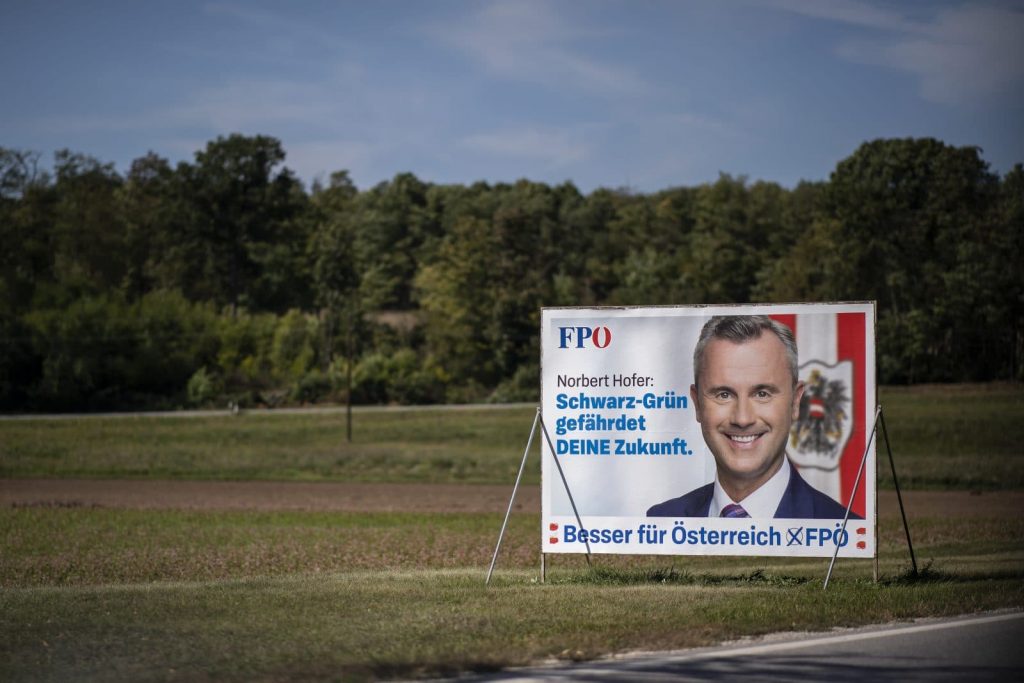
Austria holds a parliamentary election on September 29, triggered by the collapse of the coalition government between Strache’s FPO and the larger centre-right Austrian People’s Party.
The alliance took power in 2017 but crumbled in May this year after a video surfaced appearing to show Strache, in an Ibiza hotel, offering public contracts to a fake Russian donor in return for campaign help for the FPO. Strache resigned as vice-chancellor and FPO leader.
But the scandal has not hurt the FPO’s standing as much as some expected. The party came third in May’s European Elections in Austria with 17.2 per cent of the vote and a new alliance with the Austrian People’s Party remains on the cards after the election.
The FPO will again look to win the Serb vote with support for Serbia’s opposition to the independence of its former Kosovo province and by tapping into anti-Muslim sentiment among many Orthodox Christian Serbs.
“Strache has tried to animate the Serbian diaspora, especially Serbs with Austrian citizenship and the third or fourth generation of Serbs in Austria,” said Vedran Dzihic, a senior researcher at the Austrian Institute for International Affairs at the University of Vienna.
“During the pre-election campaign there were some billboards with Strache wearing orthodox Christian beads around his wrist and he spoke openly about the Kosovo issue,” Dzihic told BIRN, referring to elections since 2012/2013.
“Many young Serbs were very active in his party and some of them are in very influential positions in his FPO, so they could influence the policy of the party.”
They include Konstantin Dobrilovic, a long-time adviser to Strache, and Nemanja Damnjanovic, an FPO member of the Vienna city senate. Dobrilovic was still Strache’s adviser at the time of the Ibiza scandal but when contacted in July by BIRN he said via mobile text message that he had “retired from politics” and does not give statements or interviews. Damnjanovic did not reply to requests for comment.
Dzihic noted that the wife of former FPO deputy leader Johann Gudenus, Tajana, is a Serb from Bosnia and that both Strache and Gudenus had received medals from Bosnian Serb nationalist leader Milorad Dodik.
Then in February 2018, as vice-chancellor, Strache gave an interview to the Serbian daily Politika in which said that Kosovo, “without any doubt, is a part of Serbia,” a direct challenge to official Austrian policy that recognises the majority-Albanian territory as a sovereign state.
In the Ibiza sting, Strache describes former Serbian paramilitary leader and underworld boss Zeljko ‘Arkan’ Raznatovic – who was involved in a wave of ethnic cleansing in the 1992-95 war in Bosnia and was shot dead in a Belgrade hotel in 2000 – as a “cool guy”. Strache reportedly attended a concert of Arkan’s widow, Serbian folk star Ceca Raznatovic, in Vienna in 2003.
Migrant competition for work
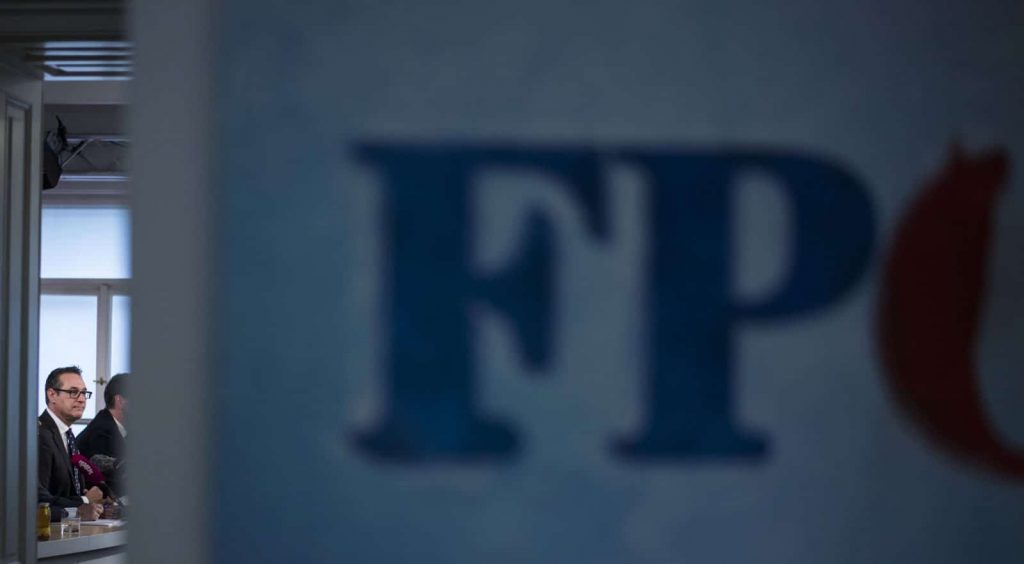
When Markovic joined the FPO, in 2006, Strache was looking to shed a reputation for hostility towards all foreigners, he said.
“We made an agreement with Strache to improve the position of Serbs in Austria and in Europe and in return we would vote for him,” Markovic told BIRN.
“I advised Strache to buy advertisements in Serbian media in Austria,” he said.
Markovic said the FPO bought space in the Austrian editions of a number of Serbian newspapers. Such papers – tabloids Kurir, Vecernje novosti and Vesti – are well-read among Serbs in Austria and are heavily nationalist in tone.
Markovic said Serbs in Austria had traditionally backed the dominant Social Democratic Party, “But Strache had success with the Serbian diaspora because of his tactic of spreading fear of migrants and offering the kind of rhetoric we want to hear.”
Eight years later, in 2014, Markovic quit the party, accusing it of trying to ’assimilate’ Serbs in Austria.
“That wasn’t part of the deal,” he said. “We spent 500 years under Turkish rule and they never succeeded in assimilating us. My engagement with the FPO was a deal with the Devil.”
Markovic’s change of heart aside, the FPO’s outreach paid dividends, and it was not just about Kosovo, said Vladimir Gligorov, a professor at the Vienna Institute for International Economic Studies.
“When you look at the profile of people who came to Austria from Serbia or [Bosnia’s] Republika Srpska, you’ll find that they support right-wing attitudes in terms of the labour market because they exclude their competitors who, according to Strache, ‘don’t fit in terms of colour, skin or faith’ into Austrian society,” Gligorov told BIRN.
The average voter from Serbia or Bosnia, he said, may be working illegally or have only a temporary work permit, “and they compete with other immigrants from other countries. So Strache’s attitude is acceptable to them and it is the main thing motivating them to vote for him.”
Ivica Brankovic, son of the Austrian Serb retiree Zivorad Brankovic, told BIRN: “In his public appearances, Strache presents himself as a politician who is against Islam, but not against foreigners who are live and work regularly in Austria. After all, he has said that he is against those migrants who do not want to integrate in Austrian society.”
Some Serbs, however, say Strache failed to keep his word on Kosovo when the party took power in 2017. That may yet cost the FPO in the next election.
“I was at his rally in Vienna and I can tell you he was very persuasive,” said Ratomir Milosavljevic, a Vienna taxi driver for almost three decades.
“When you say that the seizure of Kosovo was unfair, you touch the Serbian soul. He played that role perfectly, like a professional actor.”
Milosavljevic speculated that almost 80 per cent of Serb voters backed the FPO in 2017, though voting figures by nationality are not actually publicly available.
But, on taking power, Strache “forgot everything he was saying and how many votes he got from us, because he didn’t need our votes anymore,” Milosavljevic told BIRN.
Odd political bedfellows
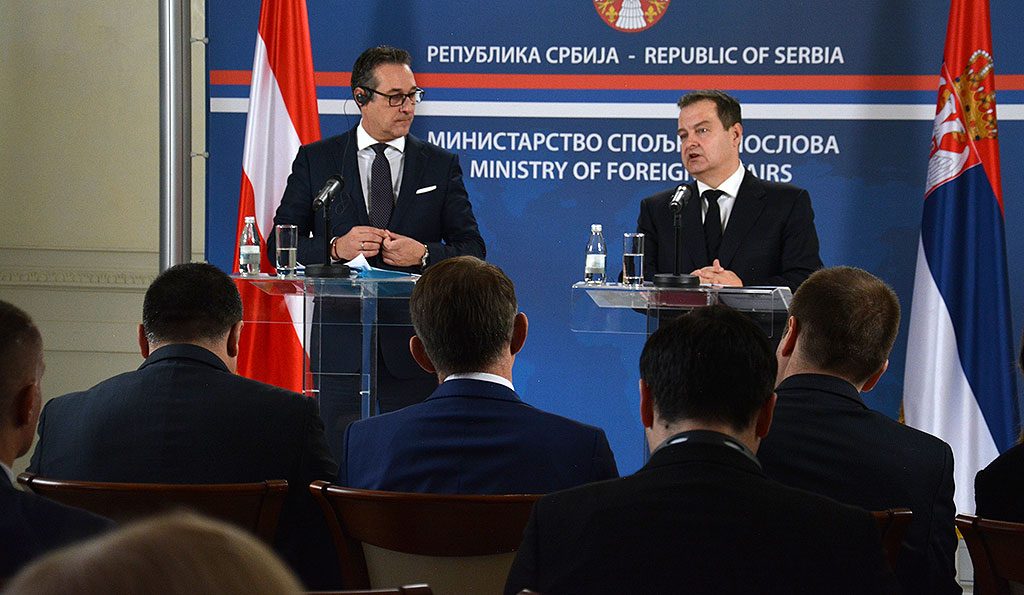
But if an anti-migrant party winning votes among migrants isn’t ironic enough, the FPO has found another unlikely ally in Serbia in the Socialist Party once led by late Serbian strongman Slobodan Milosevic, the junior partner in Serbia’s ruling coalition and one that, on paper at least, sits at the other end of the political spectrum from the FPO.
In practice, like the FPO, the Socialists are nationalist to the core.
“When the FPO was in opposition, Mr. Gudenus started an Internet petition against Kosovo’s membership of UNESCO and Kosovo’s independence declaration,” Dragan ‘Palma’ Markovic, leader of the Socialist-allied United Serbia party, told BIRN.
Socialist Party deputy leader Predrag Markovic, however, said his party had been too “easily jumped into Strache’s embrace”.
“He was the first Austrian politician who was polite and friendly to Serbs in Austria,” Markovic told BIRN. “We should know that an impassioned far-right political wouldn’t really like foreigners, especially foreigners from the Balkans.”
He said the two parties had no formal cooperation.
But Belgrade-based political analyst Cvijetin Milivojevic said their meeting of minds “wasn’t unusual, since neither is the Serbian Socialist Party a leftist party nor is the Austrian FPO a far-right party. They are nationalistic parties.”
Unfortunately for Serbia, he said, Strache had not kept the promise made to Austrian Serb voters to reverse Austria’s recognition of Kosovo.
Strache in Praise of Arkan
In May, two German media outlets published a video showing Strache and Gudenus talking to a woman claiming to be the niece of a Russian oligarch at a luxury resort in Ibiza. Filmed in July 2017, Strache is heard suggesting he could offer lucrative public contracts to the woman in exchange for campaign support.
The woman, in fact, had Serb roots, but that was not the only Serb connection.
In the video, Strache describes Serbia as a “fantastic country” where he is “almost as popular as Vladimir Putin”. Nevertheless, he told the woman that Russian business people should avoid investing in Serbia as some of his Austrian friends had faced problems trying to do business in the country.
In a subsequent book by the Suddeutsche Zeitung journalists Frederik Obermaier and Bastian Obermayer, Strache is quoted as describing the assassinated Serbian mafia boss and paramilitary leader Arkan as a “cool guy” and a “funny and great person”. He referred to Serbian Prime Minister Ana Brnabic, who is gay, as a “lesbian”.
“Don’t forget,” he said, “Strache was addressing a population of more than 100,000 Austrian citizens of Serbian origin who have the right to vote, which is a huge potential for a small Austria.”
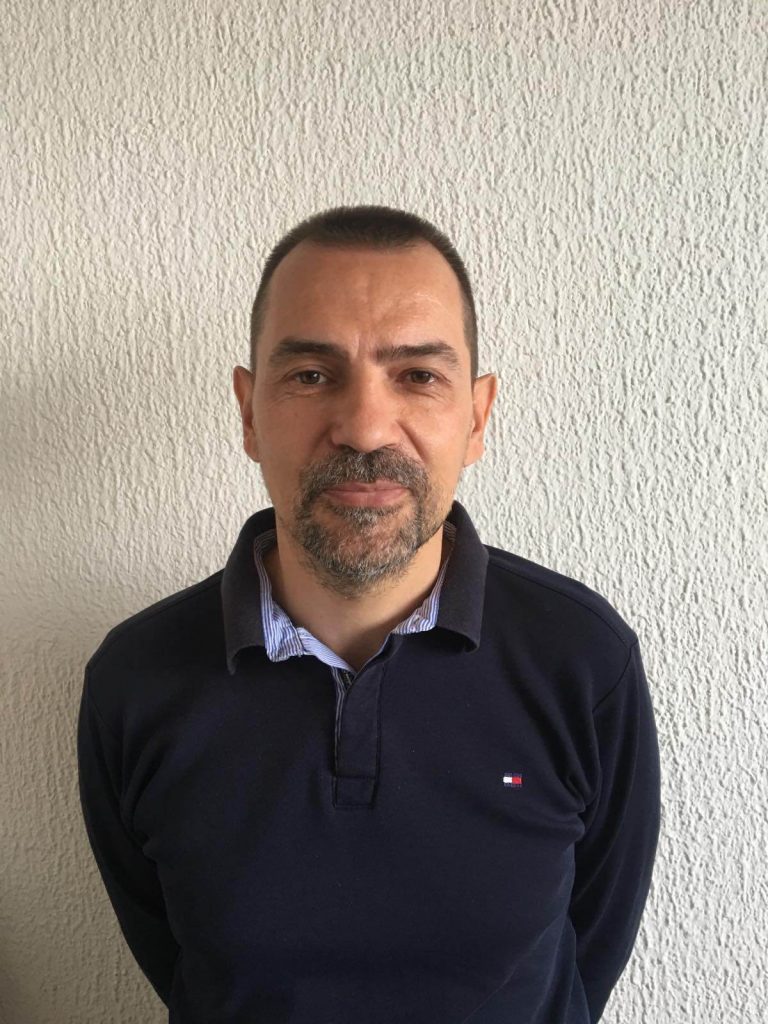
Aleksandar Roknic is a journalist at the Serbian daily “Danas”. He writes about law, culture, war crimes, politics and crime.
Roknic is also experienced in court reporting, including covering cases at the International Criminal Tribunal for the Former Yugoslavia in The Hague as well as legal and sociological phenomenon and politics.
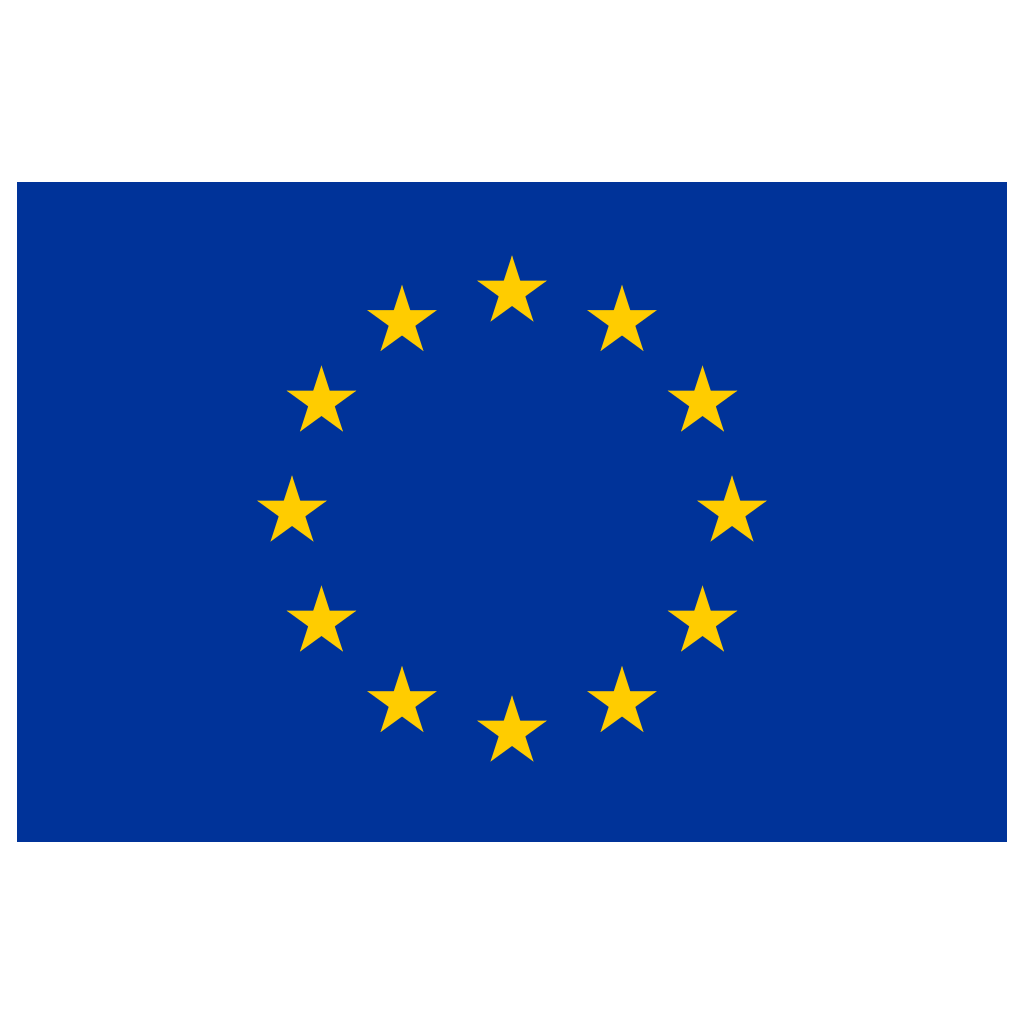
This article has been produced as part of the Resonant Voices Initiative in the EU, funded by the European Union’s Internal Security Fund – Police.
The content of this story represents the views of the author and is the sole responsibility of BIRN. The European Commission does not accept any responsibility for use that may be made of the information it contains.
